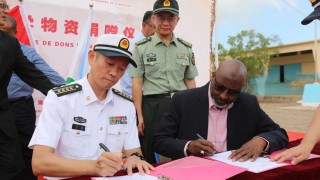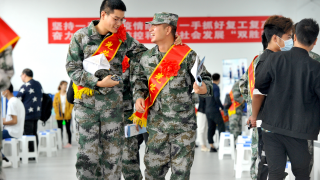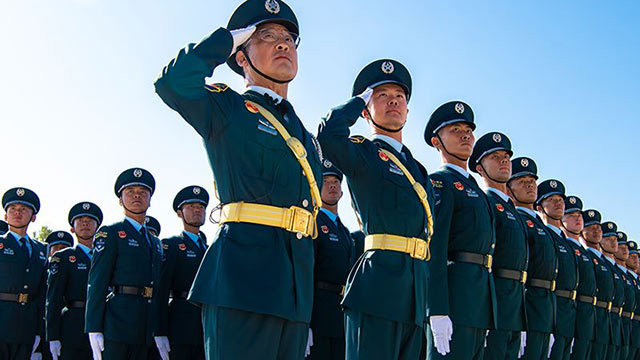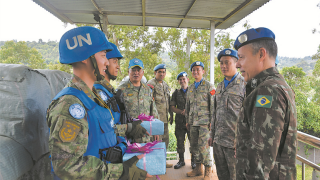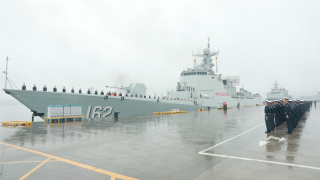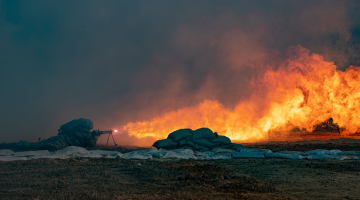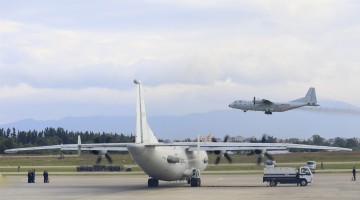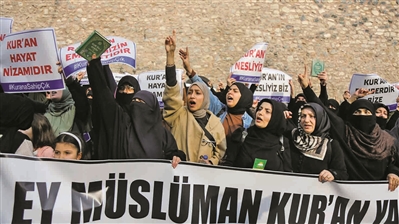
The Turkish Foreign Ministry recently announced that the trilateral meeting with Sweden and Finland on their admission to NATO originally scheduled for February has been postponed indefinitely, throwing a spanner in the approval procedures for those two countries to join the organization as a package. It is learned that Turkey has repeatedly protested Sweden’s permission for what it has designated as terrorist organization supporters and right-wing extremists to gather in protest. Turkish president Erdogan said on January 23 that his country won’t greenlight Sweden’s admission to NATO.
NATO’s expansion may be put on hold.
Sweden and Finland both applied to join NATO in May 2022 on the grounds of national security. As a rule, the organization can only take in new members when a unanimous agreement is reached among all 30 existing members, and, as it turned out, Turkey is the first member to say no, citing Sweden’s consistent support for what it has designated as terrorist organizations.
Through rounds of mediation by the US and European countries, Turkey, Finland and Sweden signed a memo at the NATO Summit held in June 2022. It affirmed that Turkey agreed on principle to their entry to the western alliance, while they no longer supported members of the Kurdistan Workers Party (PKK), Syria’s Kurdish military group People’s Protection Units (YPG), and the Fethullah Gulen movement, in addition to lifting the defense equipment export ban against Ankara. The three countries also agreed to set up a regular mechanism to follow upon the implementation of the memo and strengthen cooperation in common security. The postponed trilateral meeting is the second under the mechanism.
Foreign media reported that Turkey put off the meeting mainly because of the tension with Sweden resulting from two protests against Ankara held in the latter. PKK supporters did derogatory things about Turkish president Erdogan in a recent assembly in Stockholm, and the president slammed Sweden for indulging in the PKK terrorists and requested it to extradite 130 PKK members to Turkey, which he said was a prerequisite for agreeing to Sweden’s admission to NATO. Later two more protests were staged in Stockholm, in response to which Erdogan said Sweden could forget about its support for it to join the organization. Turkish foreign minister Mevlut Cavusoglu called the Swedish government’s permission of the protests incomprehensible and inexcusable, while Finland, eager to clear itself of the matter, said it would reconsider the “package” application had Sweden’s been deferred. Foreign media commented that Finland joining NATO alone would leave Sweden over a barrel as it would have no security guarantee from the organization after giving up the policy of military neutrality and non-alliance. Swedish Prime Minister Ulf Kristersson later said joining NATO alongside Finland was the most important national security issue at the moment, and he would try to resume dialogue with Turkey. Analysts conjectured NATO’s northward expansion might be put on hold because of “Turkey’s wrath” with little chance of realization before June 2023.
The NATO bloc may see rift.
“Turkey’s wrath” didn’t just come out now, but has been simmering for a long time due to the country’s being squeezed within NATO. A large portion of Turkish people believe that countries like the US and Britain have consistently exercised hostile and destructive policies against their countries. The vice chairman of Turkey’s Motherland Party said there was an anti-Turkey force inside NATO as evidenced by Sweden’s recent provocations, which might prompt Ankara to quit the organization. Although his threat to pullout was then explained as an overinterpretation according to a statement released by a Turkish government official, the long-standing conflict between Turkey and some NATO members has quickly exacerbated. Some members of Turkey’s opposition parties even said the earlier military crisis between Turkey and Greece was also stoked by certain members. Foreign media commented that the divergences arising from the joining of Sweden and Finland have already eroded the organization’s solidarity.
Moreover, the members have taken different stances regarding the protests in Sweden and Turkey’s response. America said its assessment found Sweden and Finland fully qualified to join the organization and it would help expedite the process as per the procedures. French right-wing forces publicly expressed their support for Sweden and called on Paris to put more pressure on Turkey. Belgium and Poland accused Turkey of making trouble and urged the US and Britain to control the discourse within NATO and facilitate Sweden’s entry. Mainstream media of certain members even published articles clamoring for the expelling of Turkey from the alliance.
On the contrary, countries including Germany, Italy and Romania have expressed understanding of Turkey’s concerns and thought what Sweden did too rash, which analysts said might once again aggravate the internal dispute over NATO’s northward expansion. In particular, at a time when the US-Europe rift is hard to bridge, some European countries don’t see eye to eye and a right-wing surge is in process in Europe, every move Ankara makes may further attenuate the alliance’s cohesion. With so many divergences and disputes piling up, NATO is far from a united, cohesive bloc now.
Geopolitical landscape may be reshaped.
In the past two years, Turkey has been very active on international and regional hotspot issues with a growing influence, playing a part in the tripartite talks with Russia and Syria, the food export negotiations, and the war intermediation in Central Asia’s Nagorno-Karabakh region.
According to analysis, Turkey’s disagreement with NATO’s expansion will undoubtedly exert immense effects on Europe. For one thing, the arguments among European countries on such issues as religion, culture, democracy, and rights and interests may go deeper, and the traditional divergences between the “old” and the “new” Europe and among different regions of the continent may widen. Both will seriously affect the geopolitical landscape. For another, NATO members that have been temporarily united on the anti-Russia common ground may split apart because of their varying interests.
